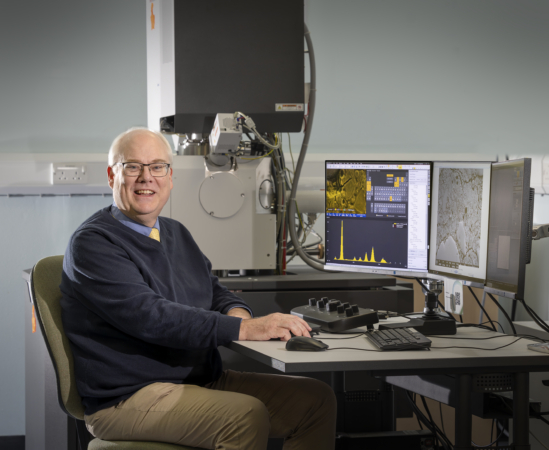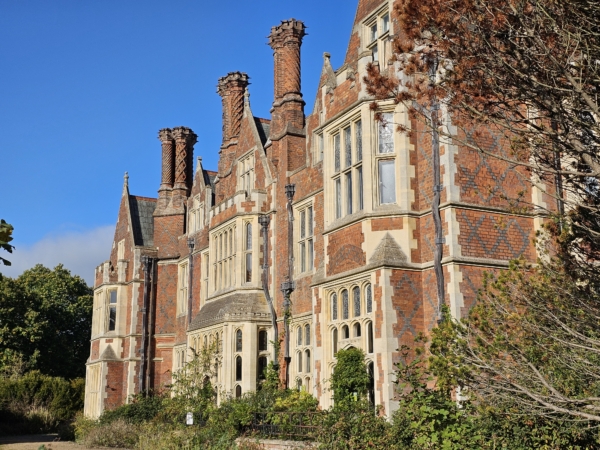Fellowship delivers real benefits
Since 2016 AWE, in collaboration with the Royal Academy of Engineering and the University of Bristol, has supported a fellowship at the University of Bristol, led by Professor Tom Scott.
Prof. Scott’s research and eminence in materials science has contributed to AWE’s work, in particular the development of radiation detection and mapping technologies.
The relationship between AWE and Prof. Scott has delivered important research in nuclear forensics – a specialism that includes finding nuclear materials outside of regulatory control whether through theft, diversion, trafficking or terrorist activity – which enables identification and establishment of the material’s origin quickly, safely and securely.
Prof. Scott and his team have developed detectors integrated with mobile robotic platforms to map and characterise the distribution of radioactive materials remotely – as part of AWE’s commitment to safeguarding national security.
Another highlight has been the research he has led into materials storage, processing and detection, enabling AWE’s specialist experts to better understand the metallurgy and corrosive characteristics of uranium and its alloys.
During his time on the fellowship programme, a total of 104 research papers have been published in prestigious international peer reviewed journals, with over 20 presentations at leading conferences.
Prof. Scott said: “This fellowship has been a major success in terms of outputs, but also in terms of real programmatic impact for AWE and its mission. It has been rewarding and enjoyable to spend so much time working with AWE staff, developing joint research and tackling thorny technical challenges together. It’s also uniquely allowed me to deploy robotic mapping technologies on numerous nuclear sites including Chornobyl. I very much look forward to continuing my work with the AWE well beyond this fellowship!”
Chair of the Royal Academy of Engineering’s Research Chairs and Senior Research Fellowships scheme, Professor Jeff Magee FREng, said: “A core objective of the Research Chairs scheme is to strengthen the links between industry and academia by supporting exceptional academics in UK universities to undertake user-inspired research that meets the needs of the industrial partners. Professor Scott’s work with AWE is an outstanding example of what can be achieved through collaborations of this nature, meeting the scheme’s objectives at the highest level.”
One of the many responsibilities of AWE’s Outreach Liaison Office is sponsoring leading academics to undertake research of mutual benefit – helping to influence, engage and inspire the wider STEM community in the UK.
AWE Deputy Chief Scientist, Professor Norman Godfrey, said: “In recognition of Tom’s outstanding work, our strengthening ties with the University of Bristol and with more collaborative research projects to come, I am delighted that Tom has been awarded a William Penney Fellowship. The William Penney Fellowship is the highest honour bestowed upon academics whose work and contribution are strategically vital for AWE now and in the future.”



